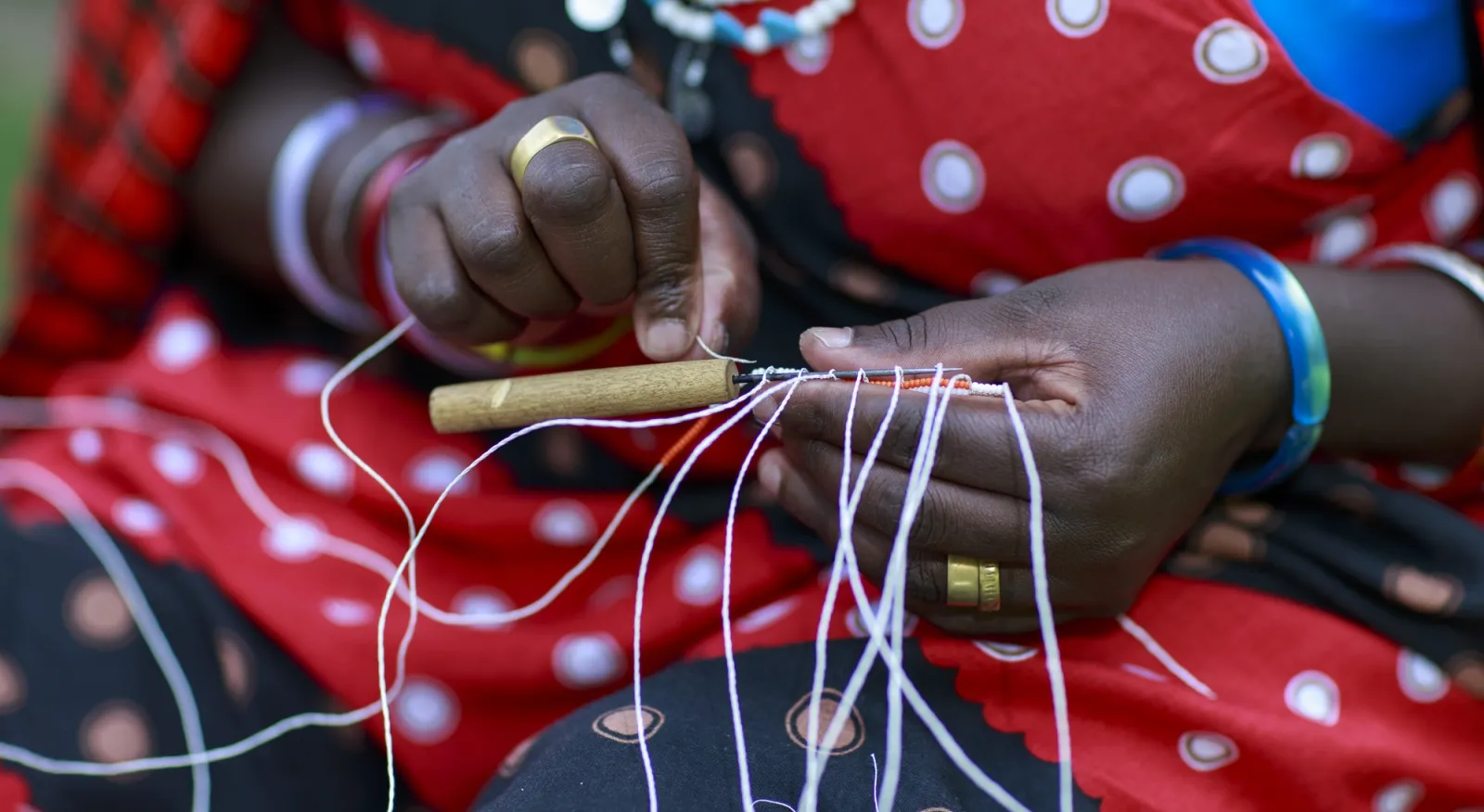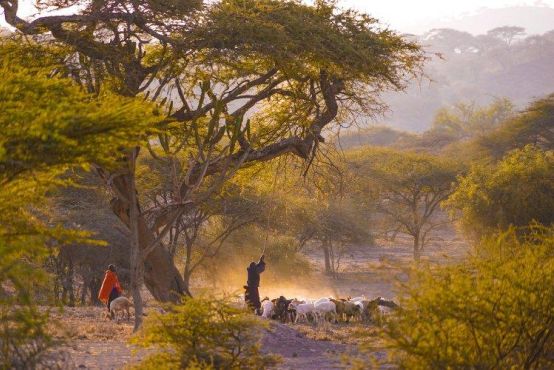
About Tanzania
Tanzania is in East Africa, it has a substantial coast on the Indian Ocean, and borders many countries including Kenya and Zambia. A geographically diverse country, from the plains of the Serengeti to beaches, lakes and Africa’s highest peak, Mt Kilimanjaro.
In the pre-colonial era, the region that is now Tanzania was inhabited by various ethnic groups and city-states, including the Swahili city-states along the coast, the Kingdom of Kilwa, and the Maasai in the interior. The arrival of Arab traders and later European explorers played a pivotal role in shaping the coastal regions' history and the establishment of trade routes. Ports along the coast played a key role in the East African slave trade.
In the 19th century, the area now known as Tanzania was colonised by Germany and then the British. The region gained independence from Britain in 1961, with the mainland Tanganyika and the island of Zanzibar joining to become the United Republic of Tanzania in 1964. To this day, Tanzania has been one of the most peaceful and politically stable countries in Africa.
Poverty is a major problem in Tanzania, contributing to significant and complex development challenges. As of 2022, nearly 26 million people in Tanzania lived in extreme poverty at less than 1.90 U.S. dollars a day. Despite sustaining relatively high economic growth over the last decade, rapid population growth has meant that the number of people experiencing poverty has not declined.
The country faces tough barriers to development; the economy is largely restricted to agriculture, infrastructure is often insufficient, and local businesses are constrained by limited support and investment opportunities.
Australian volunteers have supported a wide range of Tanzania partner organisations achieve their development goals since 1964.
Learn more about the Australian Volunteer Program's work in Tanzania.
Key things to consider about volunteering in Tanzania
- Homosexuality and same sex sexual activity are illegal. These laws are actively enforced. Individuals who identify as LGBTQIA+ face discrimination, harassment, and violence. Advocacy and support for LGBTQIA+ rights in Tanzania is not available or may be very limited due to the legal and social environment. Read more in the Pride Guide section.
- Malaria is prevalent in some areas of Tanzania. Taking precautions and using mosquito nets and repellents is advised.
- Tanzania is a culturally diverse country with numerous ethnic groups and languages. Volunteers need to be culturally sensitive and respect customs.
- Tanzanians are warm and friendly. Greetings are an important part of social life, and during first encounters, questions about personal details (e.g. marital status, religion, children) are common and can be confronting for some.
- Tanzania offers a wide variety of options for those wishing to explore the country. From white sandy beaches to a snow-capped peak, in time off volunteers may enjoy an unforgettable game drive or immerse themselves in cultural learning experiences.
Supporting Tanzanian partners remotely
Learn about Larrakia woman Kia Devine who volunteered remotely for three months as a Fundraising and Proposal Writing Mentor with partner organisation Maisha Outreach Therapy Organisation (MOTO) based in Moshi, the Kilimanjaro region of Tanzania.
Learn more
Culture and religion
Tanzanian culture is characterised by its ethnic diversity, with over 120 distinct ethnic groups and a rich tapestry of traditions, languages, and customs. This cultural diversity is a source of pride, fostering a sense of national unity and respect for one another's heritage. Swahili, the national language, serves as a linguistic and cultural bridge. Tanzanian society is male-dominated and conservative, particularly outside major cities. Homosexuality is illegal in Tanzania.
Religion
Religion plays an important role in the lives of Tanzanians. Islam and Christianity are the main religions, with a smaller minority of people practicing Hinduism, Buddhism or traditional beliefs. Religious tolerance is generally a hallmark of Tanzanian society, and the country's constitution provides for freedom of religion.
Dress
Volunteers are encouraged to dress modestly, especially in more conservative and rural areas. Women should wear clothing that covers the shoulders and knees, and everyone should avoid clothing that is revealing.
In urban areas, many Tanzanians wear Western-style clothing, however, in rural areas, traditional clothing is more common.
Language
Tanzania is a linguistically diverse country. The two official languages are Kiswahili (Swahili) and English. Kiswahili is widely spoken and is the language of instruction in primary schools (years 1 to 6), while English is also used in education and government. In addition, each ethnic group in Tanzania has its own language or dialect.
Volunteers in Tanzania will predominantly work alongside staff who speak English. However, a basic understanding of Kiswahili is helpful as it will lead to a more fulfilling experience.
The program provides funding to support language lessons. More information on this process will be available during the onboarding process.
Explore our Pride Guides
LGBTQIA+ program participants must be aware of the country's context before undertaking an assignment. Pride Guides are designed to introduce key issues related to people with diverse SOGISEC & their participation in the program.
Learn more
Day to day life
Climate
Situated on the East African Coast along the Indian Ocean, Tanzania experiences a variety of temperatures from tropical weather on the coast to a cooler climate in the highlands. There are two major rainy seasons; light rainfall from October to December and more consistent, heavy rain from March to June. The central plateau tends to be dry and arid throughout the year.
It is important to note the effects of climate change on day-to-day life and weather patterns, this will look different based on location. According to the World Bank, Tanzania is prone to risks from extreme weather events such as increased seasonal variation in rainfall and temperature, and frequent and prolonged droughts and floods.
Telecommunications
Tanzania has multiple mobile phone providers and all offer internet connectivity. Internet connection is typically strong and affordable in all major cities and towns.
Food and dining
Supermarkets are common in cities, although most Tanzanians prefer buying produce from markets. Restaurants offer a range of dishes including western style food and local and international cuisines. Vegetarians and vegans are well catered for as meals are often plant-based; however, options may be limited in rural areas.
Accommodation
There is a range of accommodation on offer across Tanzania including private houses, apartments and long-term bed and breakfasts. Most rental houses are unfurnished. Our in-country team will support you to find a suitable accommodation option.
Find out about our in-country allowances
Transport
Most Tanzanians use public buses, known as 'daladalas', to get around cities. Taxis are plentiful but they not metered, so fares should be negotiated and agreed upon prior to beginning your journey. Alternatively, rideshare apps are available in Dar es Salaam and Arusha.
Larger buses connect all cities, towns and villages across the country. There are three railway lines in Tanzania; Tazara, running from Dar es Salaam to Lusaka passing through Morogoro, Iringa and Mbeya. Central line runs from Dar es Salaam to Kigoma through Dodoma and Northern line from Dar es Salaam to Tanga and on to Arusha. Train schedules are not always reliable.
Personal Safety
When it comes to your safety and security you must be willing to adapt your behaviour and lifestyle to minimise the potential for being a target of crime. Like anywhere in the world, crime does exist in Tanzania.
While Tanzania is generally safe for visitors, petty crimes like pickpocketing are common in urban areas but can be avoided or minimised by following basic safety precautions. Women may be at a heightened risk of sexual harassment and assault.
Personal safety issues constantly evolve, we recommend you keep an eye on Smart Traveller for current information.
Mobility and Accessibility
We’re committed to ensuring that international volunteering is inclusive and accessible to Australians from a range of backgrounds, with diverse perspectives, identities and abilities.
To support this, Access and Inclusion Plans are available for volunteers with disabilities to assess their needs and ensure their living and working requirements are fully considered. Indigenous Pathways is an Indigenous-led program that focuses on providing culturally safe, flexible and tailored support for Aboriginal and Torres Strait Islander volunteers.
Individuals with physical disabilities, including wheelchair users, may find accessibility a problem in Tanzania. Footpaths are often uneven or absent and most buildings don't have provision for wheelchair access. If you have access-related requirements, please discuss this during the recruitment process.
Before applying for a volunteering assignment in Tanzania, please do some further research on living in Tanzania and the organisation you are hoping to volunteer with. Successful applicants will have the opportunity to discuss expected living and working arrangements with their recruitment officer.